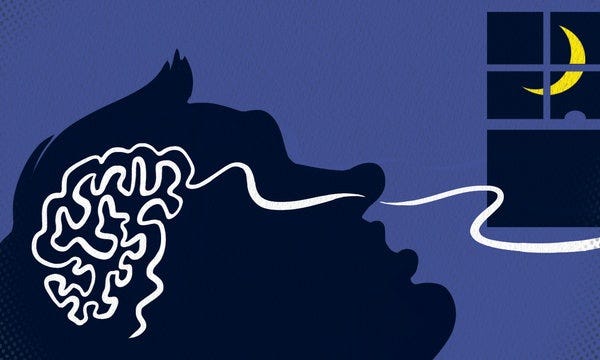We all know that sleep is important, but what many of us don’t know is how the quality of our sleep is determined.
The four pillars of sleep are:
- Depth/Quality (your brain waves produced during the different stages of sleep)
- Duration (7–9 hours, non-negotiable)
- Continuity (waking up during the night)
- Regularity (going to bed and waking up at the same time every day).
In a recent podcast Sleep researcher Dr. Matthew Walker sheds light on how to optimize sleep. This was one of the best podcast episodes I’ve listened to in a while and is packed full of practical advice and the latest research on sleep science. I highly recommend it.
The podcast is here and you can check out Dr. Matthew’s fantastic book here: Why We Sleep: Unlocking the Power of Sleep and Dreams.
Big takeaways from the podcast that blew my mind:
- If you get on average five hours of sleep per day, one week before your flu shot, it renders half of the antibodies useless. Make sure you are getting enough rest or the flu shot is almost pointless!
2. Men who sleep 5 hours or less a night have a level of testosterone that is 10 years their senior.
3. When sleep trackers are compared to actual data gathered in lab sleep studies, Dr. Matthews says they’re not quite accurate (accuracy rate of 60% and under). They don’t necessarily measure the quality of your sleep, and the best way to know if you’ve had a good night’s sleep is simple…If you don’t need to use an alarm and wake up naturally.
4. Playing sounds during your sleep can improve your memory of those things: If a certain sound was played when certain objects where shown (compared to objects/sounds that were not replayed while you slept), and then it was re-played during your sleep…the next day your memory retention of that object is 2x better. The sounds have to be played at a “sub-threshold awakening sound level” so as not to wake you during your your sleep. (learn while you sleep is true!)
5. The half-life of caffeine is 6 hours.
That means if you drink a cup of coffee at noon, a quarter of it is still in your system at midnight. Even if you’re sleeping, the caffeine does adversely affect your natural deep sleep cycle. I’ve personally I typically wait at least 1 hour after waking up to drink coffee (during which time I stretch, meditate and read). This gives me ample time to wake up without feeling like I need the coffee.
Interestingly since I’ve started limiting my caffeine intake to only one cup of coffee at 9am, I’m craving coffee less and naturally drink half the amount I normally would (I used to drink 2–3 in the afternoon)! While it kicks in fast, caffeine stays in your system for 10–12 hours, which can disrupt the quality of sleep. And how do I feel? Pretty fresh, not anxious and a lot less agitated. Small changes!
6. Not enough sleep is a carcinogen
“The link between a lack of sleep and cancer is now so strong that the World Health Organization recently classified any form of nighttime shift work as a probable carcinogen.” — Dr. Matthews
7. High doses of CBD seems to help people sleep more consistently. (but more studies need to be done on this). However, THC seems to have the opposite effect.
8. When you learn something and then sniff a certain odor — you’ll associate what you learned with that odor. While you’re sleeping if the odor is perfused up your nose, your memory retention improves two fold!(Smell is powerful. I heard about The Wolf of Wall Street using this clever technique to boost his confidence during sales presentations. He would sniff an orange scent after a good sales meeting, and then next time he would go to a presentation where he was nervous he would take a whiff of the same scent, and it would immediately imbue him with a sense of confidence.)

— –
Thanks for reading! If you enjoyed you can follow my blog here and catch my latest articles in my weekly newsletter.
This Post Has 2 Comments
Alexander Bjørn
16 Apr 2019I love this article. Sleep is the one thing I never back out of. The more stressed I get and the more tight my schedule is the more willing I am to demand regular long hours of sleep.
It’s the best thing there is to living a productive life. That said- it would be nice to never have to sleep at all..
I might try the caffeine thing. I drink way too much of the stuff.
Keep writing my friend.
Misha
17 Apr 2019Thanks! I absolutely agree. The more stressful our days and the bigger decisions we have to make, the more sleep we should be getting. And yeah, reducing caffeine played a huge role for me. This also meant changing the timing of my chocolate intake (I love dark chocolate) to lunch instead of dinner, as dark chocolate has quite a bit of caffeine in it!